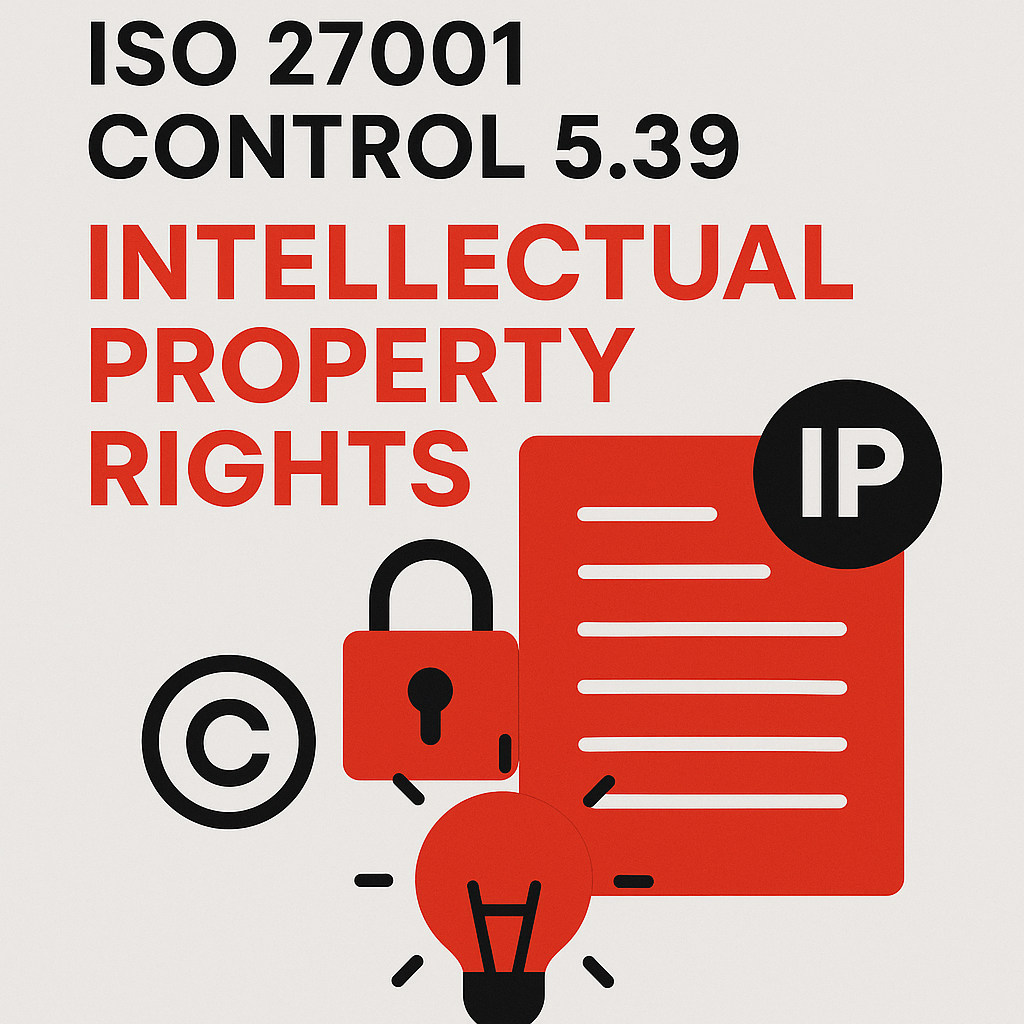ISO 27001 Control 5.39 safeguards your organization’s intellectual property and ensures respect for others’ rights. Learn how protecting IP strengthens security, compliance, and innovation with insights from Canadian Cyber’s ISO experts.

Your business runs on more than systems and data it runs on ideas.
Designs, source code, reports, creative assets they’re all intellectual property (IP) that define your competitive edge.
But here’s the catch: if those assets aren’t properly protected or respected, you’re one click away from losing your innovation or facing a costly legal battle.
That’s why ISO 27001 Control 5.39 Intellectual Property Rights (IPR) exists.
It ensures organizations protect their own intellectual property and respect the rights of others.
Because safeguarding innovation isn’t just about firewalls it’s about ethics, ownership, and compliance.
IP isn’t limited to big corporations every organization creates intellectual property every day.
From internal training content to software code, your IP is what makes your organization unique and valuable.
Losing control of it, or unintentionally violating someone else’s, can lead to:
🚫 Legal action
🚫 Financial penalties
🚫 Reputational damage
Control 5.39, defined in ISO/IEC 27002:2022 Section 5.39, is an Organizational control that’s both preventive and corrective, supporting Integrity, Accountability, and Compliance through the Protect and Comply cybersecurity concepts.
1. Identify and Classify Intellectual Property
Know what IP your organization owns (logos, patents, code, designs, documentation, etc.).
2. Protect Ownership Rights
Use legal protections (patents, trademarks, copyrights) and internal policies.
3. Respect Third-Party IP
Track software licenses, open-source use, and vendor agreements.
4. Educate Employees
Train staff on how to handle intellectual property properly both yours and others’.
5. Monitor and Enforce
Periodically review IP compliance, especially in creative, technical, or R&D teams.
🚫 Using unlicensed software or assets without attribution
🚫 No documentation of ownership for internally developed content or code
🚫 Failing to protect innovations created by contractors or partners
🚫 Overlooking IP in mergers, acquisitions, or collaborations
At Canadian Cyber, we’ve seen how weak IP management can quietly become a major business risk.
We help organizations build information security policies that include IP governance, ensuring your data protection efforts extend to creative and proprietary assets.
We also help teams manage software licensing, copyright compliance, and IP clauses in supplier or client contracts turning compliance into a competitive advantage.
Because in a knowledge-driven world, your ideas are your most valuable assets.
Protecting intellectual property isn’t just a legal formality it’s part of your security posture.
ISO 27001 Control 5.39 ensures your organization treats ideas, designs, and code with the same care as servers and data.
Innovation thrives when it’s secure.
At Canadian Cyber, we provide:
ISO 27001 and ISO 27001 Implementation Support
Privacy Impact Assessments (PIAs)
ISO 27018 Cloud Privacy Guidance
Internal Audit and Readiness Reviews
👉 Ready to strengthen privacy within your ISMS? Book a free consultation here.
🔗 Stay connected with the latest privacy and security insights:
LinkedIn, Instagram, Facebook, and YouTube.